Ramadan brings a month of spiritual devotion for Muslims worldwide, but also generates many questions from both observers and those curious about this sacred practice. This comprehensive guide answers the most frequently searched questions about Ramadan, providing practical information for Muslims navigating the fasting month and insights for non-Muslims seeking understanding.
When Does Ramadan Begin and End?
How is the start of Ramadan determined?
Ramadan begins with the sighting of the new crescent moon marking the 9th month of the Islamic lunar calendar. This traditional method follows the Prophet Muhammad’s instruction: “Fast when you see it (the crescent) and break your fast when you see it.”
Most countries rely on one of three methods:
- Local physical moon sighting by religious authorities
- Astronomical calculations predicting when the moon will be visible
- Following the announcement of Saudi Arabia or other major Muslim countries
The International Astronomical Center provides scientific data supporting moon sighting predictions, though many communities still prefer traditional physical observation.
Why does Ramadan fall on different dates each year?
Ramadan moves approximately 10-11 days earlier each year because the Islamic calendar follows the lunar cycle (354-355 days) rather than the solar year (365 days). This gradual shift means Ramadan rotates through all seasons over a 33-year cycle.
According to Dr. Khalid Shaukat, astronomer at Moonsighting.com, “This cyclical nature ensures that no single region bears the burden of the longest fasting days perpetually,” as fasting duration varies significantly between summer and winter.
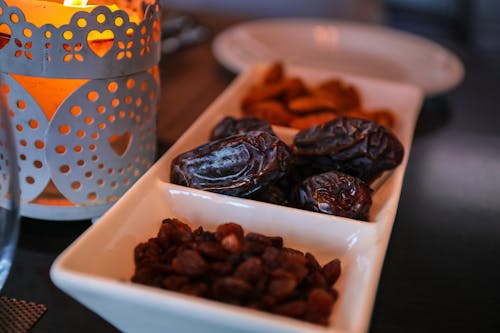
Fasting Guidelines: What Breaks Your Fast?
What invalidates a fast during Ramadan?
According to consensus among Islamic scholars at Al-Azhar University, these actions break the fast and require makeup days:
- Intentional eating or drinking
- Sexual relations
- Deliberate vomiting
- Nutritional injections
- Smoking or vaping
- Beginning menstruation or childbirth
Minor forgetful consumption doesn’t invalidate the fast if stopped upon remembering, based on the hadith: “Whoever forgets he is fasting and eats or drinks, let him complete his fast, for Allah has fed him and given him drink.”
Do medications break the Ramadan fast?
The Islamic Medical Association of North America (IMANA) provides these medication guidelines:
Generally Allowed:
- Injections that aren’t nutritional (insulin, vaccines, etc.)
- Eye and ear drops (though some scholars differ)
- Topical medications and patches
- Inhalers for asthma (with scholarly differences)
Generally Not Allowed:
- Oral medications with detectable substance
- Nutritional IV fluids
- Suppositories
Dr. Mansoor Alam, IMANA Board Member, emphasizes: “Medical necessity overrides fasting requirements. Patients should consult both their doctor and imam to develop an appropriate plan.”
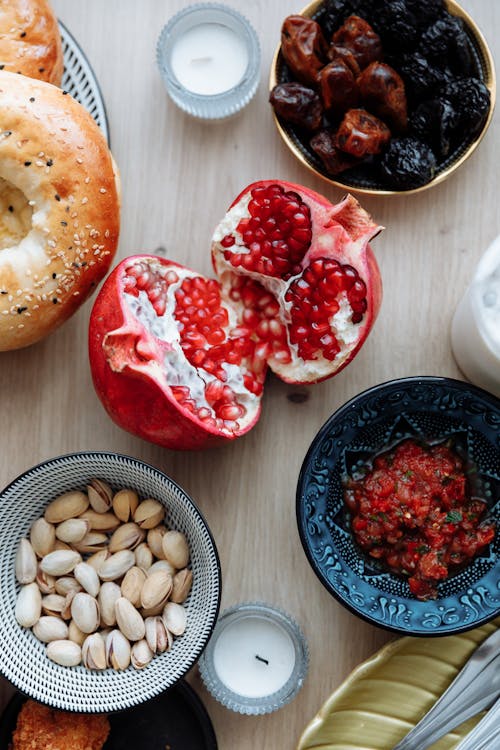
Does brushing teeth or using mouthwash break the fast?
Most scholarly bodies, including the European Council for Fatwa and Research, permit brushing teeth while fasting provided no substance is swallowed. Recommendations include:
- Using miswak (traditional tooth stick) without toothpaste
- If using toothpaste, choose a mild flavor and rinse thoroughly
- Avoiding mouthwash with strong flavor or alcohol content
- Brushing before dawn (suhoor) and after sunset (iftar) when possible
Health Management During Ramadan
How can Muslims with health conditions manage fasting?
The International Diabetes Federation and religious authorities recommend:
For Diabetics:
- Pre-Ramadan medical assessment (essential)
- Medication timing adjustments
- Blood glucose monitoring without breaking fast
- Breaking fast immediately if glucose drops below 70 mg/dl or exceeds 300 mg/dl
For Those with Chronic Conditions:
- Consult healthcare providers before Ramadan
- Consider rukhsa (religious exemption) if fasting would cause harm
- Consider partial fasting if complete fasting isn’t possible
What’s the healthiest way to maintain energy while fasting?
Nutritionists at King Faisal Specialist Hospital recommend:
For Suhoor (Pre-dawn meal):
- Complex carbohydrates (oatmeal, whole grains)
- Protein sources (eggs, yogurt, nuts)
- Healthy fats (avocado, olive oil)
- Fiber-rich foods that slow digestion
- At least 2 cups of water
For Iftar (Breaking fast):
- Begin with dates and water (following prophetic tradition)
- Wait 10-15 minutes before the main meal
- Focus on balanced nutrition rather than quantity
- Hydrate continuously between iftar and sleep

Is it safe to exercise while fasting?
Research from the Qatar Sports Medicine Journal indicates:
- Light to moderate exercise is safe for most healthy individuals
- Best timing: 1-2 hours before iftar or after taraweeh prayers
- High-intensity exercise is not recommended while fasting
- Hydration before dawn and after sunset becomes crucial
- Professional athletes often require modified training schedules
Special Circumstances and Exemptions
Who is exempt from fasting during Ramadan?
The International Islamic Fiqh Academy identifies these exemption categories:
- Children who haven’t reached puberty
- Elderly individuals unable to fast safely
- Pregnant and nursing women concerned about health impacts
- Menstruating women (who make up days later)
- Travelers on journeys exceeding certain distances
- Those with acute or chronic illnesses where fasting would cause harm
- People in physically demanding occupations where fasting would create safety hazards
Those with temporary exemptions are generally expected to make up missed days later, while those with permanent conditions may provide fidya (feeding those in need) as compensation.
Can travelers break their fast?
According to the International Union for Muslim Scholars:
- Travel distances exceeding approximately 48 miles (78 km) qualify for exemption
- Travelers may choose to fast if doing so causes no hardship
- If travel is routine/frequent, scholarly opinions differ on exemption eligibility
- Air travelers crossing time zones follow the time schedule of their location
How can pregnant and nursing women approach Ramadan?
Dr. Mariam Alhashmi at the Sheikh Mohammed Centre for Cultural Understanding explains:
“Pregnant and nursing women have a clear exemption if they fear harm to themselves or their babies. They may make up days later or, if unable to do so before the next Ramadan, provide fidya by feeding those in need.”
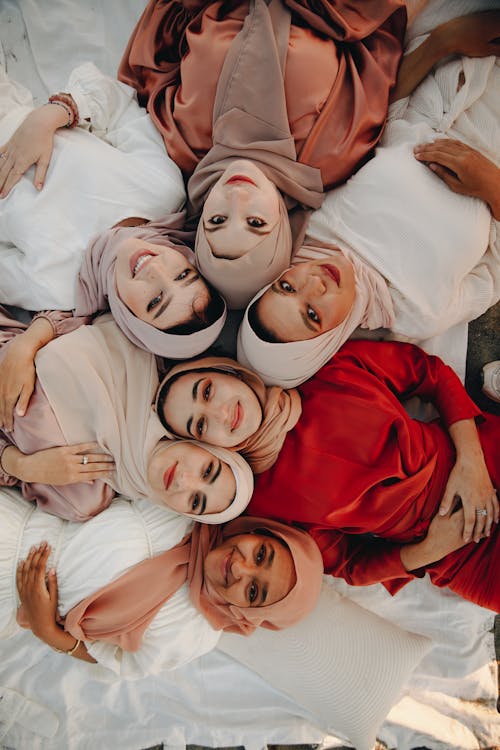
Research indicates that:
- First-trimester pregnancy often allows safe fasting
- Third-trimester fasting requires careful medical consultation
- Nursing mothers should monitor hydration carefully
- Individual circumstances vary greatly, requiring personalized medical advice
Social and Workplace Considerations
What should non-Muslims know about interacting with fasting colleagues?
The Institute for Social Policy and Understanding offers these workplace etiquette guidelines:
- Scheduling flexibility for early departure/late arrival during Ramadan
- Understanding potential energy fluctuations throughout the day
- Avoiding mandatory food-centered meetings
- Respecting prayer times and needs
- Expressing interest and support without pressure
Non-Muslim colleagues can say “Ramadan Mubarak” (Blessed Ramadan) or “Ramadan Kareem” (Generous Ramadan) as supportive greetings.
Is it rude to eat or drink in front of someone who is fasting?
Etiquette research conducted by the Pew Research Center finds:
- 72% of Muslims report no offense at others eating in their presence
- Most appreciate basic consideration (not offering food/drink repeatedly)
- Private eating spaces at work are appreciated but not required
- Communication about preferences is welcomed
Dr. Ingrid Mattson, former president of the Islamic Society of North America, notes: “Most Muslims don’t expect non-Muslims to change their eating habits but appreciate thoughtfulness, especially in confined spaces.”
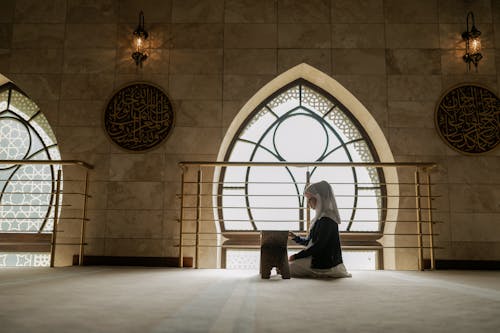
Spiritual Highlights of Ramadan
What is Laylat al-Qadr and why is it special?
Laylat al-Qadr (Night of Power) commemorates when the Quran was first revealed to Prophet Muhammad. Its significance includes:
- Worship on this night is considered better than 1,000 months (83+ years)
- It falls within the last ten nights of Ramadan, most likely on odd-numbered nights
- Many Muslims spend these nights in extended prayer and Quran reading
- The Quran describes it as “peace until the rising of the dawn”
The Center for Islamic Theology at Tübingen University explains that Muslims often look for signs mentioned in hadith, including a night that is “neither hot nor cold, with a clear sky and calm moon.”
How can Muslims maximize spiritual benefits during Ramadan?
Spiritual directors at Zaytuna College recommend:
- Setting intentional goals before Ramadan begins
- Creating a Quran reading schedule to complete recitation
- Increasing prayers beyond the mandatory five times
- Attending taraweeh (special night prayers) if possible
- Engaging in dhikr (remembrance of God) throughout the day
- Performing i’tikaf (spiritual retreat) in the last ten days
- Increasing charitable giving beyond the required zakat
After Ramadan: Eid al-Fitr and Makeup Fasts
When and how is Eid al-Fitr celebrated?
Eid al-Fitr marks the end of Ramadan with:
- Special morning congregational prayers
- New clothes and gift exchanges
- Family gatherings and communal meals
- Charitable giving (Zakat al-Fitr) before the prayer
- Festivities lasting 1-3 days depending on the country
The date is determined by the sighting of the new crescent moon marking the beginning of Shawwal, the month following Ramadan.
What is Zakat al-Fitr and who must pay it?
Zakat al-Fitr is a special charity required of all Muslims who possess more than the basic necessities of life. According to the International Islamic Fiqh Academy:
- It equals approximately one day’s worth of food (about 2.5kg of staple food or its monetary equivalent)
- Due from every Muslim, including children (paid by parents/guardians)
- Must be given before the Eid prayer to be valid for its intended purpose
- Primarily benefits the poor and needy
How are missed fasts made up after Ramadan?
For those who missed fasts due to valid exemptions, makeup options include:
- Qada’ (Makeup Fasts): For temporary conditions like illness, travel, or menstruation, missed days should be made up before the next Ramadan.
- Fidya (Feeding the Poor): For permanent conditions or elderly individuals unable to fast, providing meals to those in need (approximately one meal per missed day).
- Combined Approaches: Some scholars permit spreading makeup fasts throughout the year or fasting consecutive days if preferred.
The Dar al-Ifta al-Misriyyah affirms that missed fasts “should be made up when capable, with sincere intention, as they remain an obligation.”
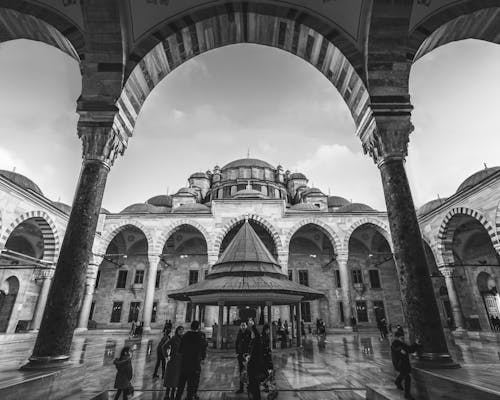
Conclusion: Ramadan’s Enduring Legacy with She&Elle of Morocco
Ramadan is more than just a month of fasting—it is a sacred time that fosters spiritual renewal, self-discipline, and community harmony. For nearly two billion Muslims worldwide, it offers an unparalleled opportunity to reconnect with faith and embrace mindfulness, gratitude, and empathy. Its practices of fasting, prayer, and charity create a holistic path toward spiritual enlightenment, physical well-being, and social unity.
At She&Elle of Morocco, we celebrate the values of mindfulness and cultural heritage that resonate so deeply with Ramadan. Just as Ramadan connects individuals with their spiritual roots, our handwoven Moroccan rugs connect homes with the authenticity and craftsmanship of Moroccan artisans, blending tradition with Scandinavian living.
For more insights into Moroccan culture, spirituality, and travel, explore these articles on our blog:
- Ramadan: The Spiritual Journey, Benefits, and Islamic Significance
- Understanding the Morocco Flag: Colors and Symbols
- The Ultimate Guide to Surfing in Morocco’s Best Waves
- Traveling to Morocco: Visa Necessities Explained
Additionally, if you’re curious about our values and policies, check out our Refund & Returns Policy.
Ramadan reminds us that true fulfillment comes not from indulgence but from self-restraint, reflection, and spiritual focus. At She&Elle of Morocco, we embrace these timeless principles, offering products that align with sustainability, ethical craftsmanship, and cultural storytelling. Let us help you create a space that reflects the warmth and mindfulness of this sacred season.

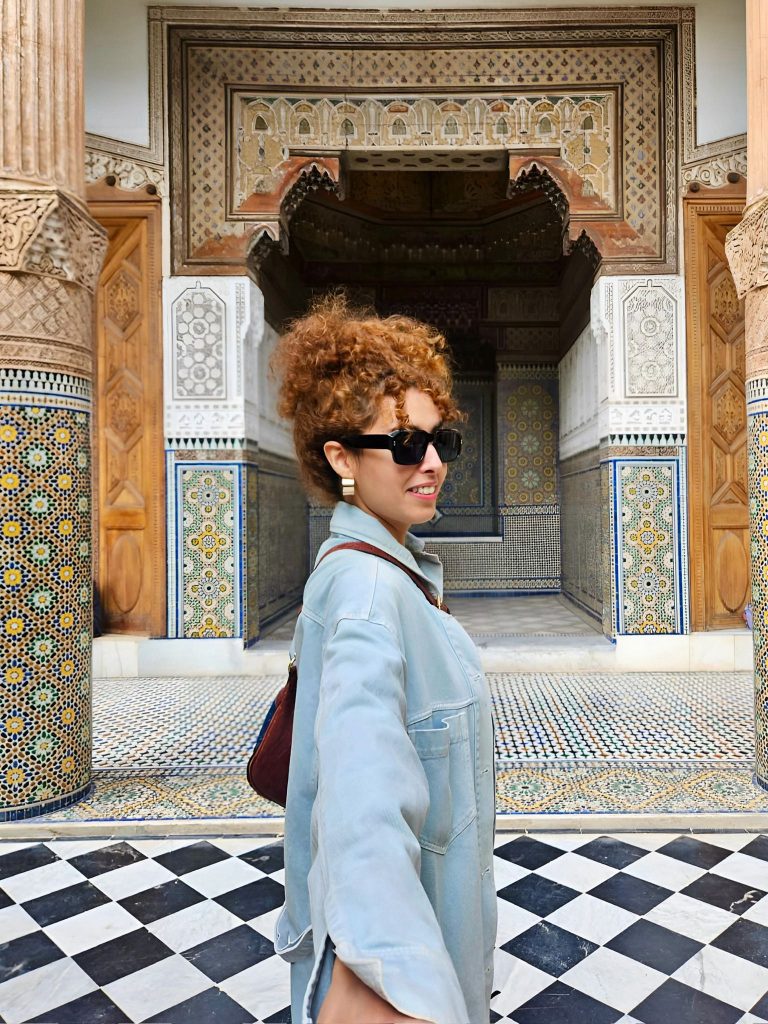

1 thought on “Ramadan FAQ: Your Complete Guide to the Most Asked Questions”
Comments are closed.